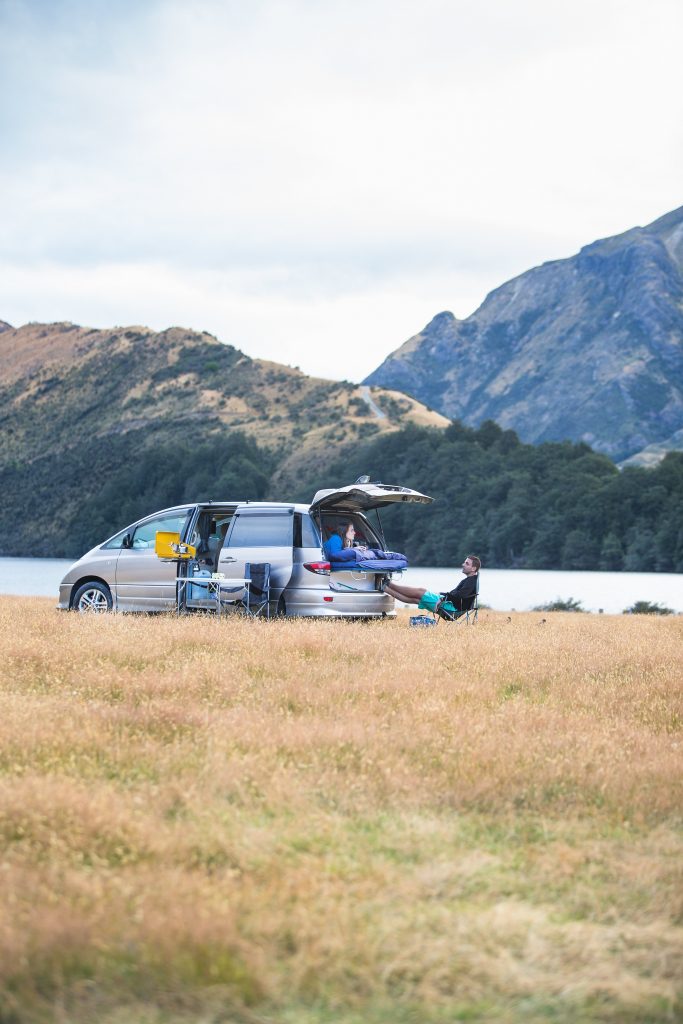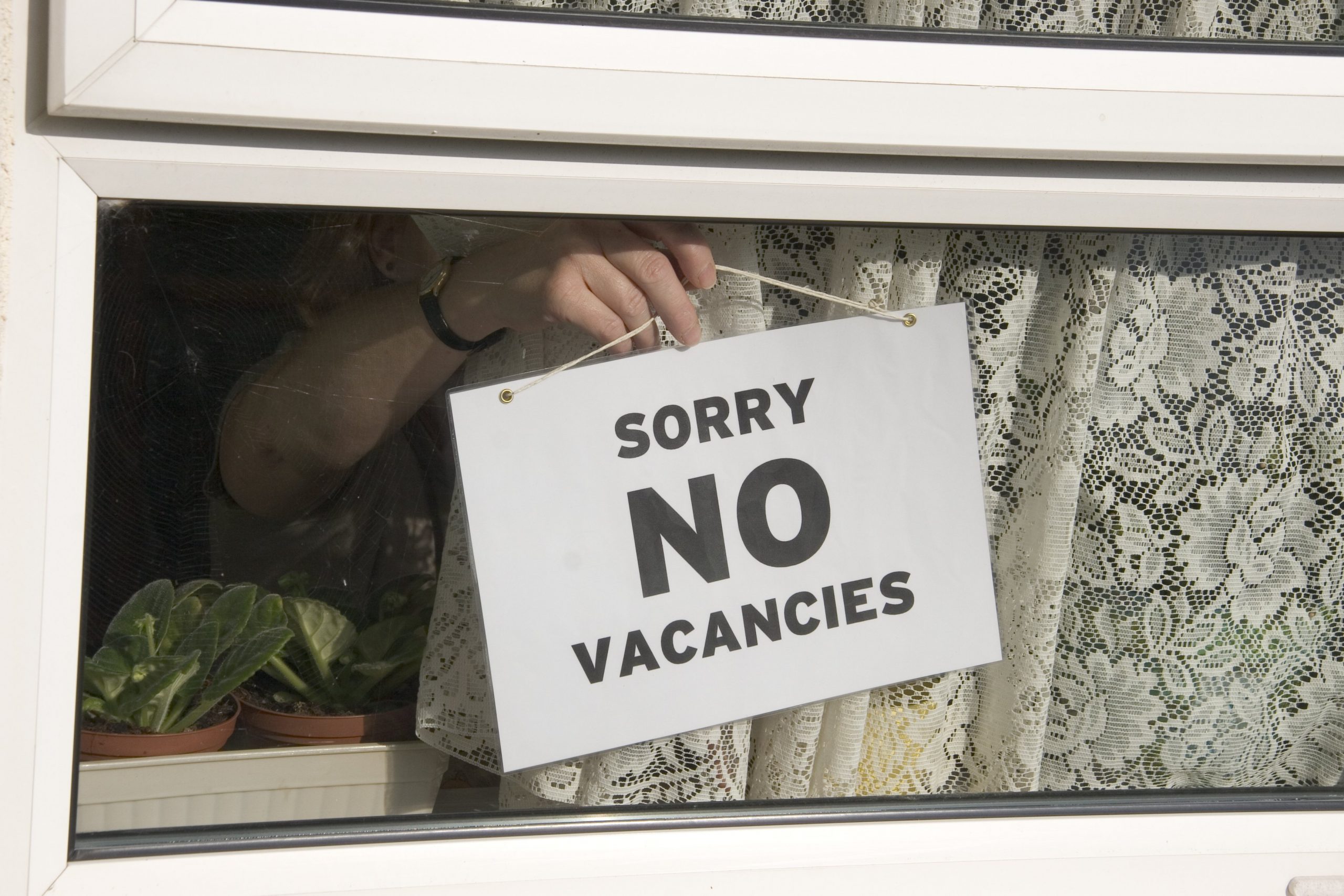People setting up camp along river and lakesides is inevitable as seasonal fruit pickers push an already tight accommodation market to the edge, a Cromwell accommodation provider warns.
Last year the Central Otago District Council predicted up to 6000 extra workers, including recognised seasonal employees, would be needed in the area over the summer.
An online search shows little rental accommodation of any type available across Central Otago.
Social media sites have long lists of people searching for somewhere to stay and any room advertised had similar lists of people wanting in.
Some advertisements specifically say no ‘‘cherry workers wanted’’, and others requiring four weeks’ rent and key bonds (which adds up to nearly $1000) are unlikely to appeal to short-term workers.
KB’s Accommodation owner Bill Sanders said his 17 rooms were full year-round with permanent residents but he still fielded four or five inquiries every day from seasonal workers looking for a bed.
The brevity of the fruit season compounded the problem, he said. His rooms were rented to tradespeople and retail workers who lived and worked in the area year round.
While he occasionally had a couple of spare rooms, year-round tenants were more important to him than short-term ones.
With the need for extra beds concentrated in the summer, a camping ground was one solution. There was now only one near Cromwell and its future wasn’t certain, Mr Sanders said.
‘‘Lots of kids will go camp up the river and you can’t blame them for that.’’
Mr Sanders had tried to get people to rent out spare rooms in their homes but believed the long-term solution lay with a camping ground to accommodate long and short-term stays.
‘‘I don’t have $20 million to do it.’’

Cairnmuir Motor Camp manager Martine McDowell said they had some seasonal workers staying but it was only a stop-gap for them.
Some were waiting for a place in orchard-run accommodation; others would have to find something else on their own as the camp was pre-booked with holiday makers over Christmas, she said.
There was a wide range of nationalities staying there and they arrived ready to camp with tents or vans but weren’t her preferred guests.
Some would start cooking at 11pm and they didn’t clean up after themselves in the shared facilities.
For the past few years Jones Family Orchard in Cromwell had offered a variety of accommodation for about 130 workers including camp sites, bunk room and share houses.
Administrator Maria de Jager said the accommodation was full with orchard and packhouse workers and would stay that way until late January-early February.
Remarkables Orchard at Roxburgh East had an onsite orchard for self-contained vans and tents. The area had kitchen, bathroom and laundry facilities.
Co-owner Toni Birtles said the accommodation was definitely an attraction for summer fruit-season staff.
‘Everyone needs to do it if they can.’’
Chef shortages meant motels and Air BnB providers should gear up to have all their dishes and barbecues used, according to Glen Christiansen, general manager of The Gate, in Cromwell.
‘‘Cromwell won’t be able to feed all those people over the holidays,’’ he said.
The Gate had enough front-of-house staff but the kitchen was the real pressure point. It had five chefs’ applications waiting for approval from Immigration New Zealand.
Accommodation wasn’t an issue at this stage but would be in due course, he said.
‘‘It will be interesting to see what next year brings.’’
The hospitality sector wouldn’t be able to trade as it had in the past. The new norm would be closing two days a week and having limited menu choices, he said.
‘‘We have to protect our staff. They need time off. You can’t slam the kitchen.’’
The problem was not confined to Central Otago. Some hotels in Queenstown were not selling up to 100 rooms a night as they didn’t have the staff to service them, Mr Christiansen, who is also the Central Otago branch president and member of the Hospitality New Zealand national board, said.
Staff shortages meant it was only possible to offer food service rather hospitality right now but it would come right in time, he said.
Discovering that chefs were not added to the Immigration NZ green list this week was beyond disappointing.
Chefs could chose between New Zealand and Australia and they got automatic residency there, Mr Christiansen.
The free and easy Kiwi summer would be different this year as it would be harder to find somewhere to eat.
‘‘People need to be patient and talk to us. If they need a quick meal let us know.’’
The real pressure was on for a relatively short time from after Christmas until mid-January, he said.
A lack of affordable housing for workers and properties being rented out through companies such as Air BnB were also putting pressure on the industry.
His hotel had to have accessible units and there were rules around everything from toilets to car parks, based on how many people they could accommodate.
A private house could be rented out for as many as 12 or 13 people, he said.
‘‘We just want them to be the same as us.’’
A combination of being a summer fruit producing area and one of the country’s most popular holiday spots created unique problems in Central Otago.
Bachcare, which manages holiday home rental properties, said some areas, including Queenstown Lakes, were already 90% booked for the first week of January.
They advised people to book now or consider holidaying later in the summer.





